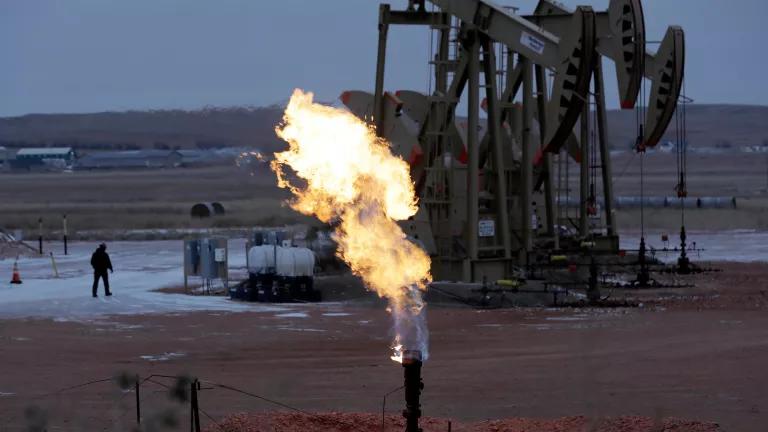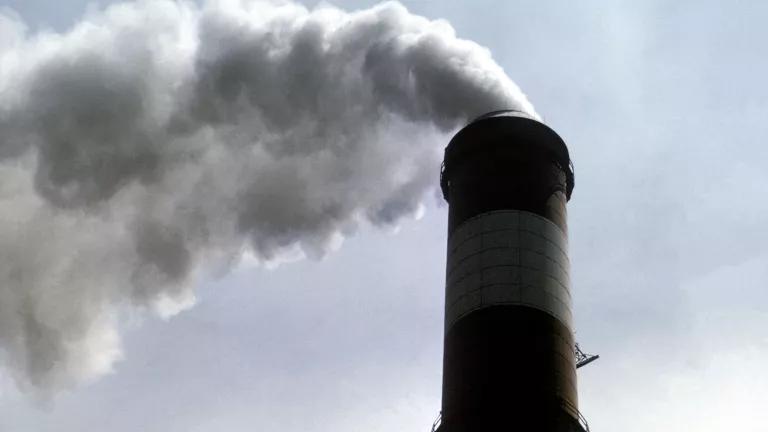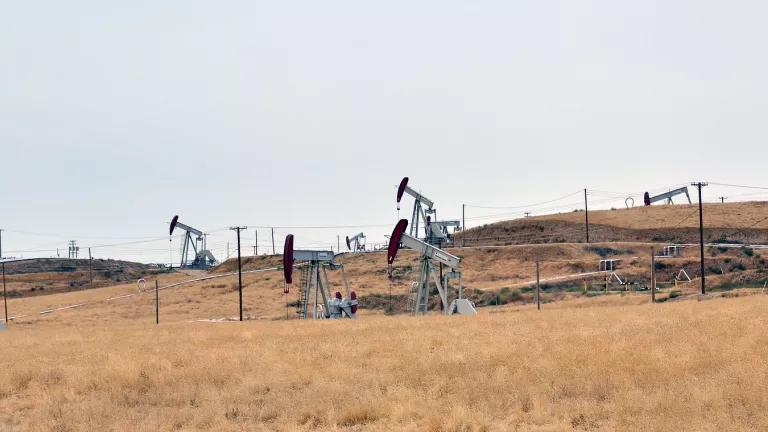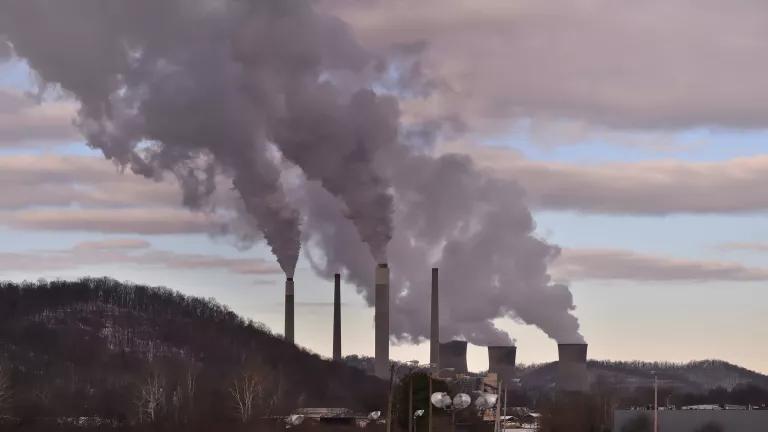EPA Hands Oil and Gas Industry a Pass on Methane Gas Pollution
The industry can now ignore wasteful leaks of the potent greenhouse gas, posing a significant threat to our climate and the health of fenceline communities.

Dealing a significant blow to Obama-era climate policy, the Trump administration today formally rolled back standards that help prevent oil and gas facilities from emitting methane—a powerful greenhouse gas that packs 87 times the heat-trapping power of carbon dioxide when assessed over a 20-year period.
“Trump’s EPA has given the oil and gas industry a green light to keep leaking enormous amounts of climate pollution into the air,” says David Doniger, senior strategic director of NRDC’s Climate & Clean Energy Program. The wasteful leaking of methane in the production, transportation, and storage of natural gas remains a pervasive industry problem.
Under the EPA’s new rule, oil and gas companies no longer have to install pollution-control equipment to detect and fix methane leaks from wells, pipelines, and storage sites. This latest rollback rescinds commonsense leak prevention standards that the EPA put in place in 2016 for all new equipment. And it also means the agency will do nothing about leaks from older oil and gas equipment that’s leaking almost 10 times more methane pollution.
The climate costs are high: The oil and gas sector remains the largest industrial source of methane in the United States—emitting an estimated 15 million metric tons in 2018, or the heat-trapping equivalent of 335 coal-fired power plants. Recent polling by NRDC—including in Pennsylvania, where EPA Administrator Andrew Wheeler announced the final rollback—shows that three-quarters of people in the United States strongly support updating and strengthening limits on methane pollution.
According to a 2015 report from NRDC and partners, the EPA could cut the industry’s methane pollution by at least half in less than a decade—while simultaneously reducing other harmful forms of air pollution, like VOCs and nitrogen oxides—if it issued federal standards for oil and gas infrastructure nationwide. Preventing methane leaks also helps to protect people’s health by reducing smog-forming and cancer-causing air pollution.
“We cannot protect the health of our children and grandchildren, especially in the most polluted and endangered communities, if the EPA lets this industry off scot-free,” Doniger says. “We will see EPA in court.”



